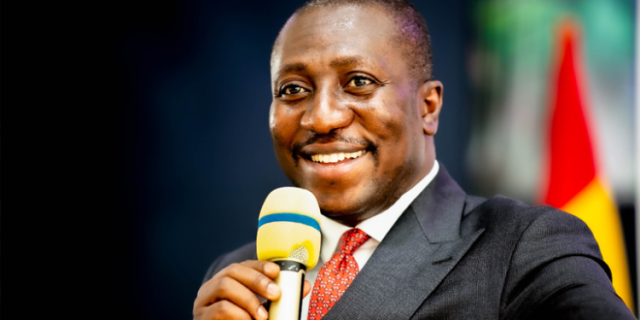Ghana’s Minority Leader, Alexander Afenyo-Markin, has challenged the widespread notion that corruption is solely a political problem, urging citizens to confront it as a societal “disease” that permeates all levels of community life.
Speaking at the 5th Annual Constitution Day Lecture in Accra, the lawmaker criticized the tendency to scapegoat politicians while ignoring broader cultural complacency. “Do we narrow corruption to the political class, or must we see it as part of our collective existence?” he asked, sparking debate over shared accountability.
Afenyo-Markin argued that accusations of corruption often stem from personal grievances rather than principled governance concerns. He pointed to contractors who decry corruption only when denied projects, noting, “Those who secure contracts wear white to church and thank God—until they lose one.” This hypocrisy, he suggested, reveals how deeply transactional attitudes have seeped into Ghanaian society.
The legislator also pushed back against stereotypes of politicians as universally wealthy, highlighting that many face financial struggles after leaving office. “Contrary to popular belief, numerous lawmakers exit public service poorer than assumed,” he remarked, challenging the narrative that political power guarantees illicit wealth.
His comments come amid growing scrutiny of Ghana’s anti-corruption efforts, including high-profile scandals and sluggish judicial outcomes. While Afenyo-Markin acknowledged political wrongdoing, he stressed that lasting solutions require societal introspection. “We must act collectively and fairly,” he urged, calling for a national dialogue to address corruption’s roots in business, civil service, and everyday interactions.
Critics, however, caution that broadening the blame could dilute accountability for leaders entrusted with public resources. Anti-corruption advocates argue that while societal complicity exists, political figures must still face heightened scrutiny given their influence over policy and budgets.
Afenyo-Markin’s remarks ignite a fraught but necessary conversation: Is Ghana’s fight against corruption hindered by a culture of selective outrage? As the nation grapples with economic challenges, his call for unity against the “disease” underscores a stark reality—meaningful progress demands more than just blaming politicians. It requires a reckoning with how ordinary citizens enable, ignore, or resist the rot in their midst.
Send your news stories to newsghana101@gmail.com
Follow News Ghana on Google News















